How a Navy Veteran is Building Community in the Mountains
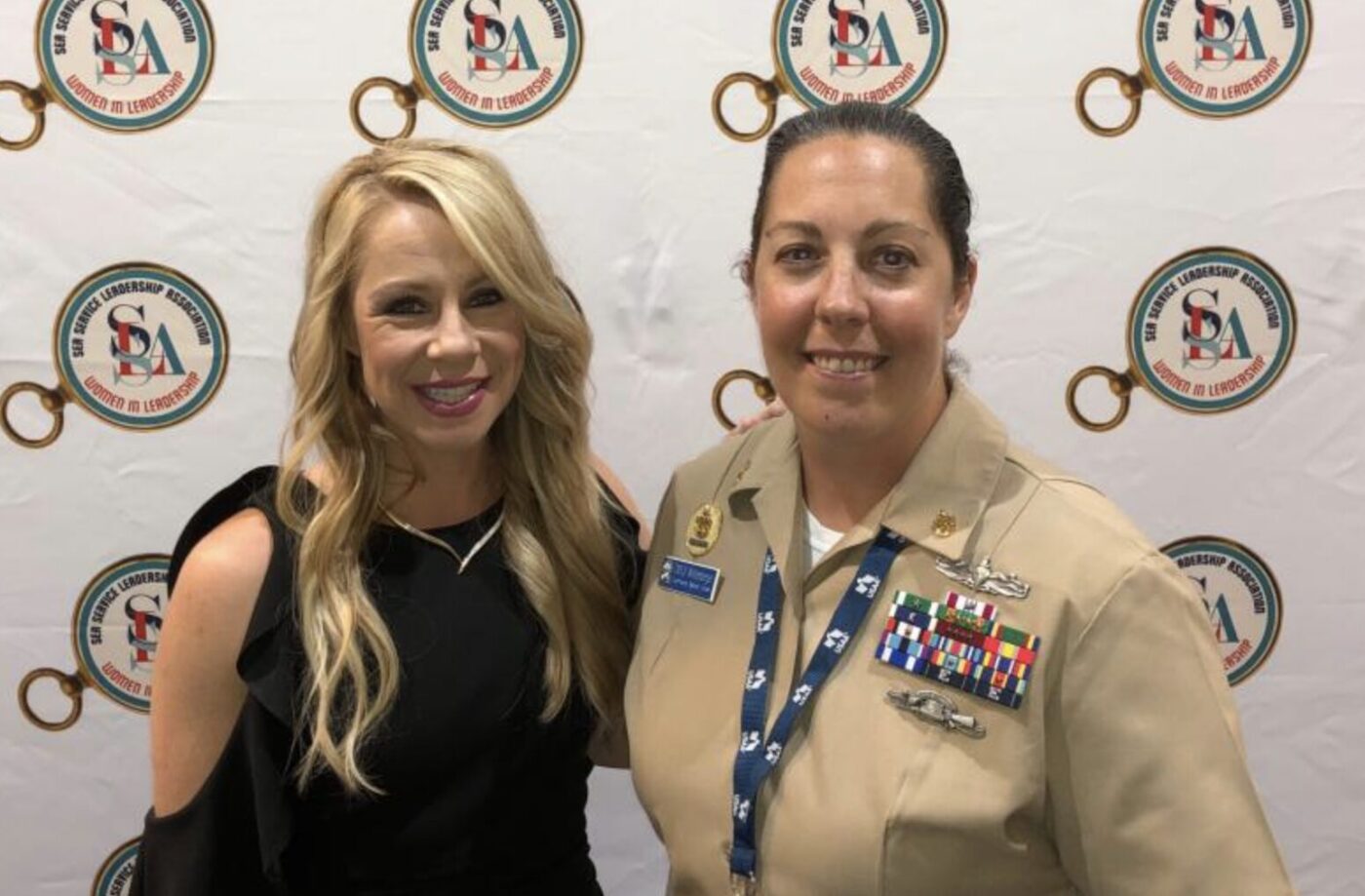
Katt Whittenberger didn’t join the Navy for stability or even for a career. She joined for adventure. Growing up far from the coast, she remembers a recruiting commercial that promised exactly what she craved: the ocean, the unknown, and the chance to tell stories as a journalist.
Her first assignment landed her on the USS Theodore Roosevelt, a nuclear-powered aircraft carrier that felt like a floating city.
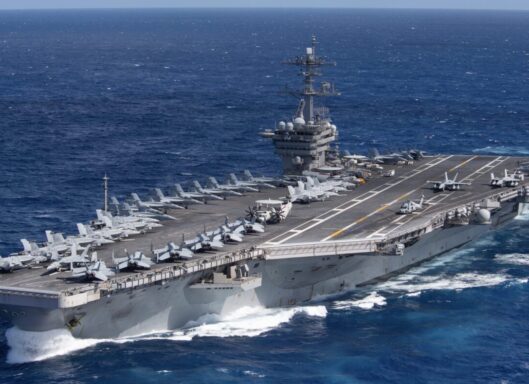
“I remember looking up at it and thinking, ‘How does this thing float?’ It’s four football fields long, and two-thirds of the ship is above water. It’s so intimidating,” she said.
The living quarters were cramped, with three-high racks stacked shoulder-width apart and only a tiny locker and shelf for personal items.
Space was limited, but the mission was big. The carrier had its own fire and police departments, post office, store, and morale and recreation programs. At sea, it became its own world, one where sailors worked hard, played hard, and forged bonds through long days and nights.
That world shifted dramatically after September 11, 2001. Just nine days after the attacks, Whittenberger’s ship deployed as one of the first to respond. Night flight operations filled the sky, a stark reminder of the gravity of what lay ahead. Technology was also changing during those years. For the first time, every sailor had an email address, offering a thin digital thread back home. Later deployments would bring cell phones and social media into the mix, reshaping how service members stayed connected even while oceans away.
What started as a search for adventure became a 21-year career that carried her around the globe and through different eras of military life. She grew as the Navy grew, mentoring the next generation and adapting to new challenges until it was time to retire.
When she did, Whittenberger moved to rural Virginia to raise her son on a farm. She traded steel decks and crowded racks for open fields and quiet nights, but the isolation came at a cost.
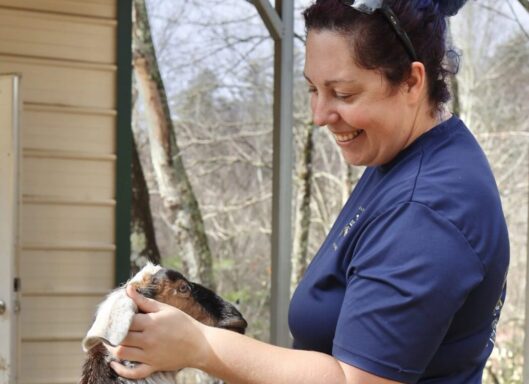
Accessing veteran resources proved difficult. Healthcare required long drives, reliable internet wasn’t always available, and administrative hurdles with the VA made navigating benefits exhausting.
The strong military identity she once carried now felt harder to hold onto. What she experienced, she realized, was not unique. It was a reality for countless veterans in rural America, especially those from the 9/11 generation.
Instead of waiting for solutions, she decided to build one. Alongside friends, Whittenberger co-founded Mountain Valor, a nonprofit dedicated to closing the gaps rural veterans face. Its signature event, Mountain Valor Fest, brings veterans and their families together each September in Floyd, Virginia, on the weekend closest to 9/11.
The festival is equal parts remembrance and celebration. A solemn flag retirement ceremony honors those lost and the sacrifices made, and the day quickly fills with other experiences: live music, food trucks, resource fairs, activities for children, and opportunities for veterans to connect with one another and with organizations that can help. It’s a space designed for families, but also for veterans who might otherwise feel cut off from the community and resources they have earned.
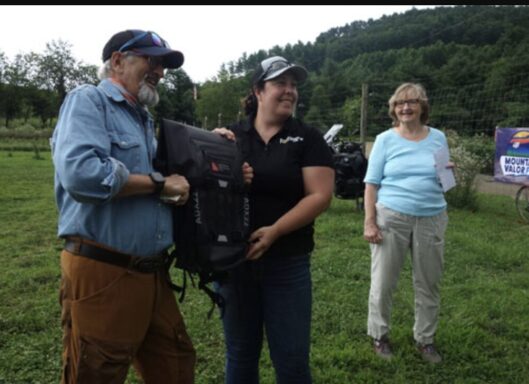
Whittenberger is quick to point out that rural veterans face obstacles their urban counterparts often do not. Healthcare facilities are farther away. Broadband access lags, and while the internet may sound like a solvable issue, mountains create dead zones where cell service doesn’t reach.
Many veterans simply are not aware of the full scope of benefits available to them. One reason is historical: Vietnam veterans often came home to find they were denied access to VA healthcare. Policies and laws have since changed, but the information hasn’t always reached rural America. Those same veterans are often retired now, and many qualify due to limited income, yet they remain unaware of their eligibility.
“Virginia is the worst state when it comes to health care, with the number of veterans who are fully eligible but have never applied because they don’t know about their eligibility,” Katt explained. “It’s so frustrating that there are so many limitations just getting rural veterans the support that they need.”
Mountain Valor exists to bridge those divides, creating events that are welcoming and engaging so that more veterans will show up, discover what is available, and get connected to the care and support they need.
Like her service in the Navy, Whittenberger sees Mountain Valor not as a short-term project but as a commitment to something larger than herself. Sustaining veteran support requires consistency, creativity, and the determination to adapt as needs evolve. Through her own journey, from chasing adventure at sea to navigating rural isolation, and now to building community in the mountains of Virginia, she embodies the resilience of her generation of veterans.
Her story is also featured in Mission Roll Call’s special 9/11 podcast episode, where she reflects on what it meant to deploy in the days following the attacks and how those experiences still shape her life today. Watch here
For veterans and organizations alike, Mountain Valor Fest is an open invitation. It takes place every year on the Saturday closest to September 11 in Floyd, Virginia. This year, it will be held on Saturday, September 13 at Crooked Mountain. Service providers and veteran families are welcome to attend, participate, and connect. More information is available at mtnvalor.org.
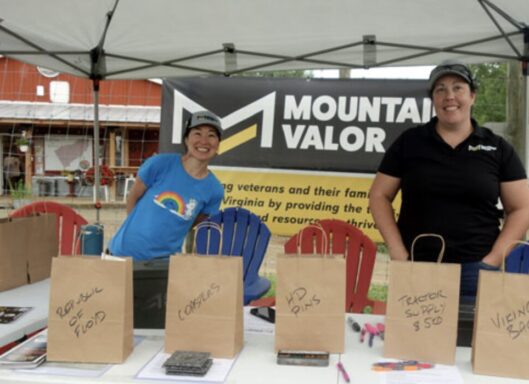
At Mission Roll Call, we believe voices like Katt Whittenberger’s matter. They remind us that veterans’ experiences do not end with their service. They evolve, often in ways that demand new solutions. By listening, learning, and amplifying these voices, we can build a stronger, more connected future for all veterans. Join us by sharing yours.